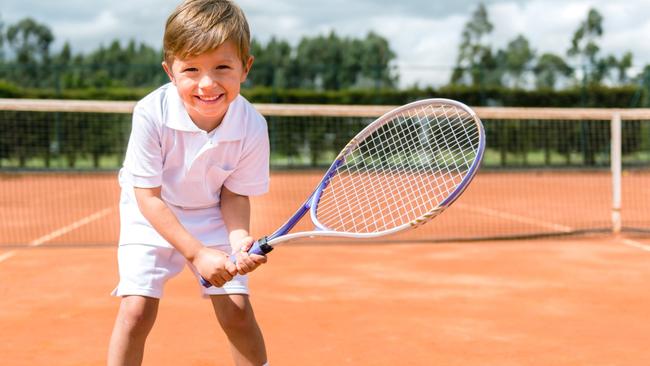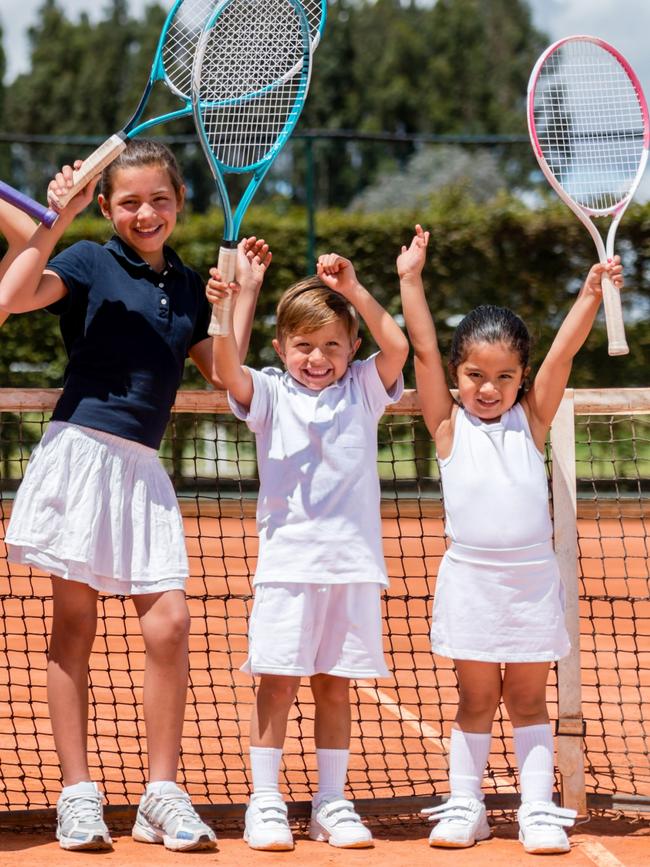Why starting kids in sport too young can backfire: New research looks at kids, aged 3 to 5, in sport
Eager parents are signing kids as young as three up for sports programs – but is it doing more harm than good? New research reveals it could be. Have your say.

Education
Don't miss out on the headlines from Education. Followed categories will be added to My News.
Parents are pushing kids as young as three into organised sport out of fear their child will be left behind if they don’t start early, new research finds.
The Adelaide study reveals many mums and dads are worried their children won’t fit in at kindergarten or school – and even risk being bullied – if they lack basic sporting prowess.
But experts warn the rush to get kids involved in sport can backfire with children who participate in organised sport before the age of six more likely to drop out within four years.


Lead researcher, Flinders University doctoral student, Emilea Mysko said while the benefits of sport participation were well documented, it was important parents understood early sport involvement could “increase injury risk, psychological burnout and sport dropout”.
“There is a lot of research coming out that shows children are dropping out of sport at an increasing rate and that dropout is happening at an earlier age,” she said.
“One of the key problems is … children are starting too young.”
Over-simplified, modified sporting programs could leave kids bored, “develop(ing) a distaste” for sport while children who engaged in highly-competitive sports, such as dance or gymnastics, from a young age risked burnout, she said.
“The psychological pressure … just the need to consistently perform can create emotional burnout which leads to drop out in early childhood,” she said.
Miss Mysko, who interviewed parents of children aged three to five across Australia to better understand what motivated them to sign up their kids, said most wanted to spark an early interest in physical activity and to prevent obesity.
“Parents commonly shared … feelings of urgency to enrol their child in sport before ‘it was too late’,” she said.
“Some worry about bullying … that if their child doesn’t get into sport at three, four or five years of age, they won’t have basic skills required for school.”
Miss Mysko said her research revealed time-poor parents viewed organised sport as a way for kids to achieve recommended activity guidelines in a safe setting.
“(But) children’s schedules are so busy, they are not able to participate in free play which is critical for imagination and where they learn to do things like jump and run by themselves,” she said.
Award-winning researcher and lecturer in sport at Flinders University, Dr Sam Elliott, said while it was important to encourage kids to adopt an active lifestyle, racing to get them enrolled in organised sport shouldn’t be the priority.
“When your child does start playing sport, give them more than one experience … diversity is critical whatever the age,” the Beyond the Club podcast host said.
“Delay exposure to organised sporting environment … promote free, unstructured play as much as you can.”





